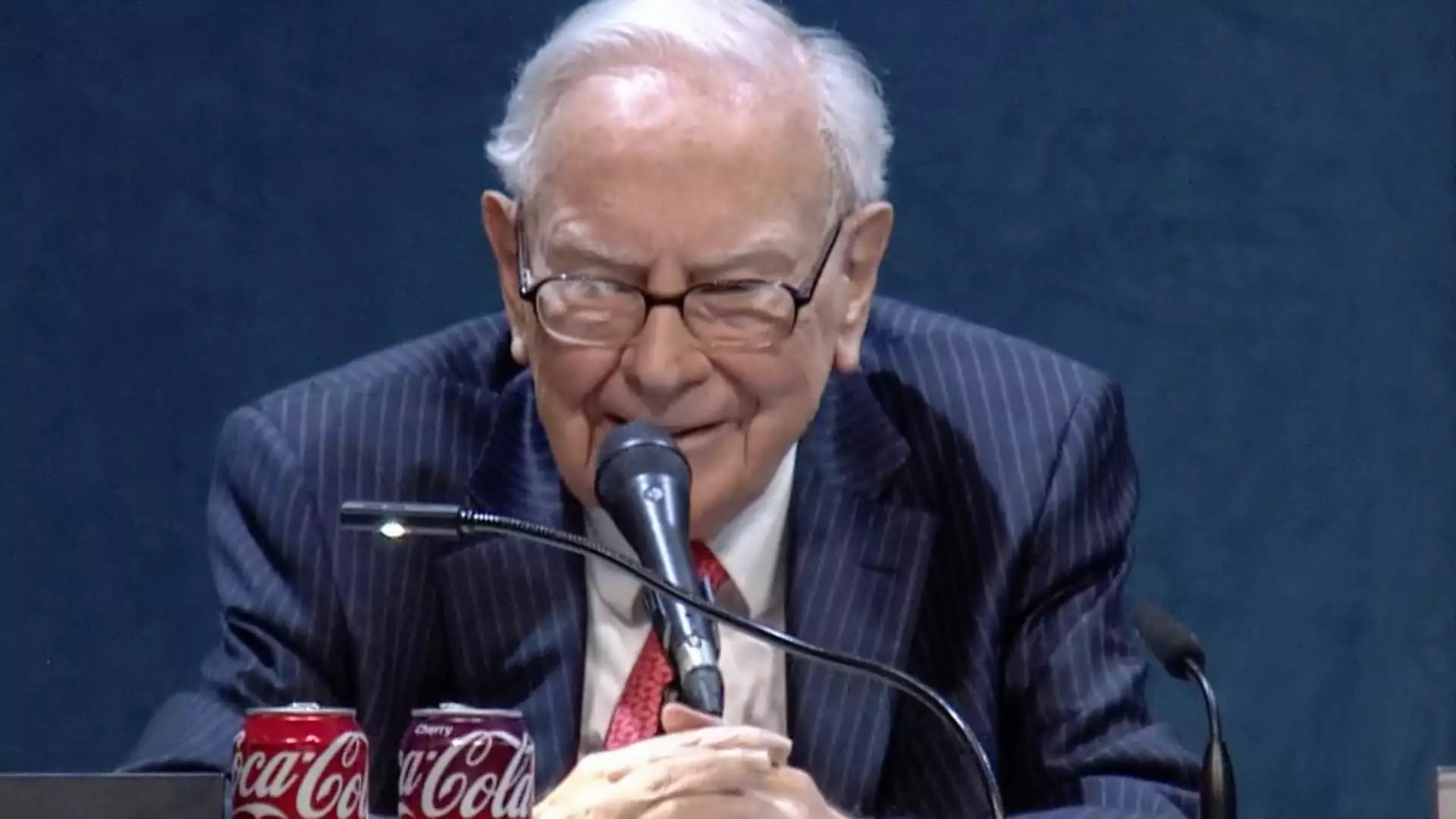In an uncharacteristic financial season, Berkshire Hathaway has reported a staggering decline in operating earnings, plunging 14% year-over-year to a disconcerting $9.64 billion. This downturn shines a glaring spotlight on the multifaceted nature of the conglomerate’s business ecosystem, which spans numerous industries including insurance, transportation, energy, and retail. It’s crucial to note that this isn’t merely a bump in the road – it’s an alarming signal that we ought to heed. When Berkshire, historically considered a bastion of financial security and astute investments, begins to tremble, the unpredictability of the current economic landscape demands our attention.
What’s especially troubling is the 48.6% nosedive in insurance-underwriting profit, which dropped to $1.34 billion from an already formidable $2.60 billion a year ago. A $1.1 billion loss attributed to wildfires in Southern California underscores an unsettling reality: natural disasters are not just statistical anomalies but formidable forces that can decimate profits overnight. With the backdrop of an unpredictable climate and attendant disasters, the potential for future losses looms large. It raises the imperative question of whether Berkshire can continue to shield itself from such volatile externalities, or if it is merely a matter of time before the next calamity strikes.
The Currency Conundrum: When the Dollar Fumbles
Moreover, the significant losses tied to foreign exchange, about $713 million, paint a grim picture of the implications of a weakening dollar. Just one year hence, that same dollar provided a $597 million benefit to the company. These fluctuations are not just numbers; they reflect broader economic vulnerabilities and set the stage for a tumultuous trajectory ahead. As the dollar index fell nearly 4% during the first quarter, Buffet’s ethos of steady, long-term investing begins to fray at the edges. Analysts aren’t merely watching a falling dollar; they’re scrutinizing the broader economic platform that supports it.
What we see here is not merely a transient market downturn but a reflection of systemic geopolitical risks underscored by new tariffs introduced under the Trump administration. The tenuous landscape painted by these tariffs is murky at best, leaving Berkshire (and by extension, its loyal investors) grappling with the implications of fluctuating product costs and uncertain consumer demand. While the conglomerate’s candor in acknowledging these geopolitical influences is admirable, their lack of predictive clarity is disconcerting. The implication that tariffs can rapidly change the course of a business bodes poorly for companies that thrive on stability and foresight.
Cautious but Cash-Rich: An Unnerving Dichotomy
Despite the alarming earnings report, Berkshire’s cash reserves have ballooned to a staggering $347 billion, a reflection of their cautious approach in an erratic market. Yet, it begs the question: is this leash on investing a strategy of prudence or fear? Have Buffett and his team transmuted from wise investors into passive spectators of a market they can no longer navigate confidently?
The fact that Berkshire remains a net seller of stocks for the tenth consecutive quarter opens a fresh chapter in its strategy, albeit one fraught with uncertainty. It’s a jarring reminder of the volatility inherent to investments and market behaviors, an uncomfortable truth that loyal followers of Buffett now face. Wouldn’t one hope for more aggressive measures from a company that has historically thrived on astute acquisitions?
Consumer sentiment, particularly in the retail sector, is influenced greatly by fluctuating market conditions. The decline in overall earnings by nearly 64% raises significant concerns about consumer spending and demand stabilization. The catchphrase “ignore quarterly fluctuations” might have worked during stable times, but in an age characterized by unpredictability, such notions ring hollow.
As Berkshire Hathaway ventures deeper into 2025, uncertainty remains its constant companion, and it feels less like an investment oracle and more like a gilded ship weathering a relentless storm. If the venerated “Oracle of Omaha” cannot consistently predict how macroeconomic forces shape its operations, why should the average investor feel secure? There’s a compelling case for vigilance amidst the seeming indifference to rising geopolitical pressures; our economic health depends on it.

Leave a Reply